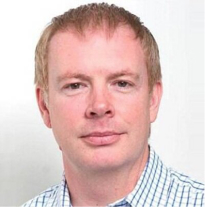Simon Short, would you like to introduce yourself and share a little about your background?
My name is Simon Short. I joined the Royal Navy at the age of 18 as a Weapon Engineer Officer; I served for 15 years whilst also completing my Engineering Degree and a Masters in Electronic Communications. On leaving the Navy I joined Vodafone where I spent 7 years leading many Programmes, including the launch of 3G in the UK. I then moved to Capgemini as CTO for the UK business, then to Salesforce, where I ran the Customer Success function globally. I am now the COO of Advanced. I live in Berkshire and have 2 daughters who have both just graduated from University.
You’ve been involved with Astriid right from the very beginning, after becoming lifelong friends with founder David Shutts. Could you tell us about how you met, and why it was so important for you to continue David’s incredible work after he passed away?
David and I joined the Royal Navy together and became close friends. We’ve shared many experiences together and our families are closely connected. David’s diagnosis was a huge shock, but his passion and drive to make a difference for others was incredibly inspirational, and very much a mark of the man he was. We shaped the concept of Astriid together and it’s hugely important to me that I do everything I can to ensure this incredible legacy lives on and delivers the life-changing support for others that David envisioned.
You have a great deal of experience in business strategy and working within recruitment. In your opinion, what are some of the biggest barriers currently preventing organisations from employing the chronic illness community, and how would you like to see Astriid overcome these?
For me, I think the biggest barrier is simply awareness. Everyone in business is always busy and time-conscious, and it’s easy to simply use only the well-established and usual channels for recruitment. In Astriid, we have to work to make this opportunity to recruit people with long-term illness part of normal processes, and raise the opportunity in the everyday consciousness of all of those that recruit people.
If you could make one change within the recruitment sector to enable it to become more inclusive for all, what would it be?
I would encourage people to be more open to possibility, and be flexible enough to think about how opportunities can be fulfilled in different ways. Doing so could have countless positive implications for both employers and prospective employees.
And finally, Simon, can you share an interesting fact about yourself? Tell us something we might not know about you.
Something you may not know about me is that for about 3 years, I ran a multi-award-winning amateur dramatic society.

